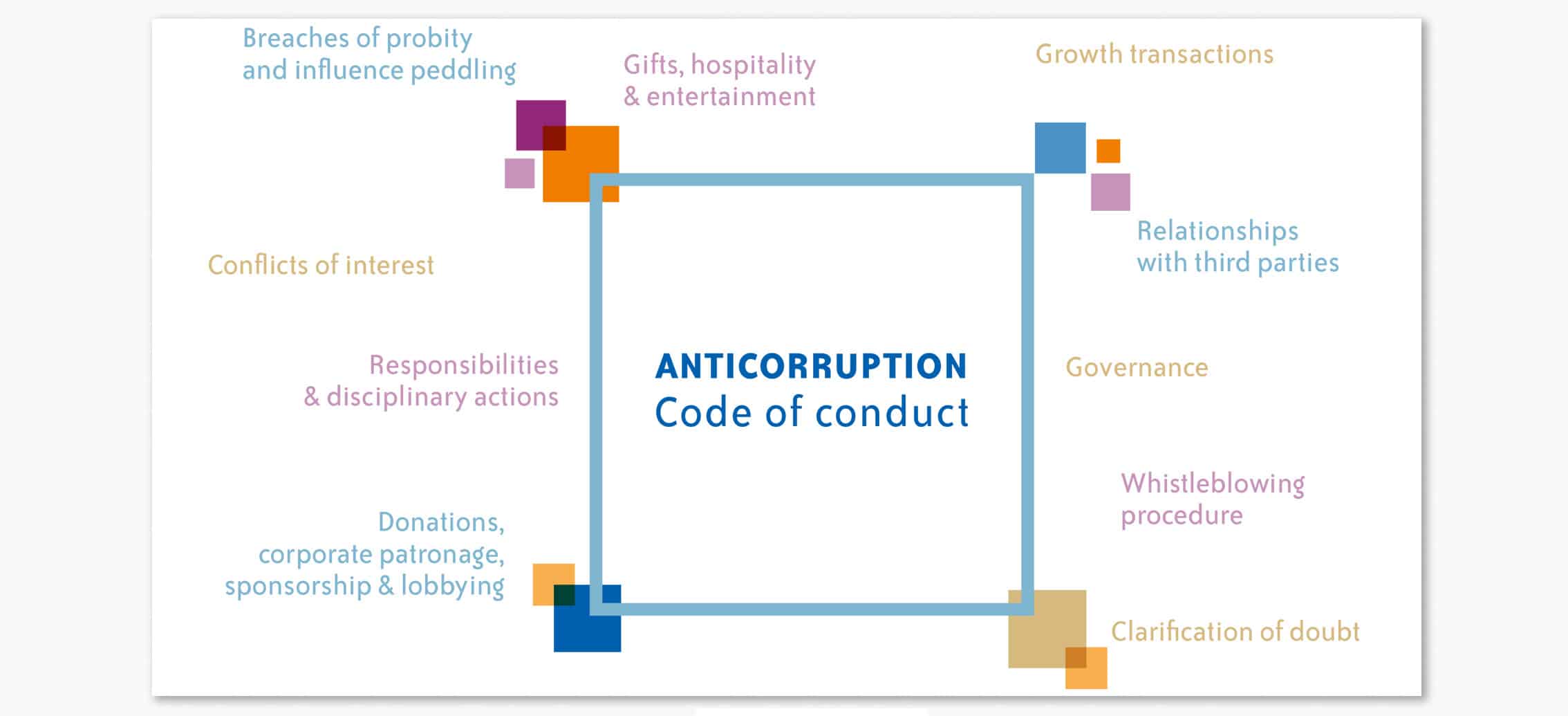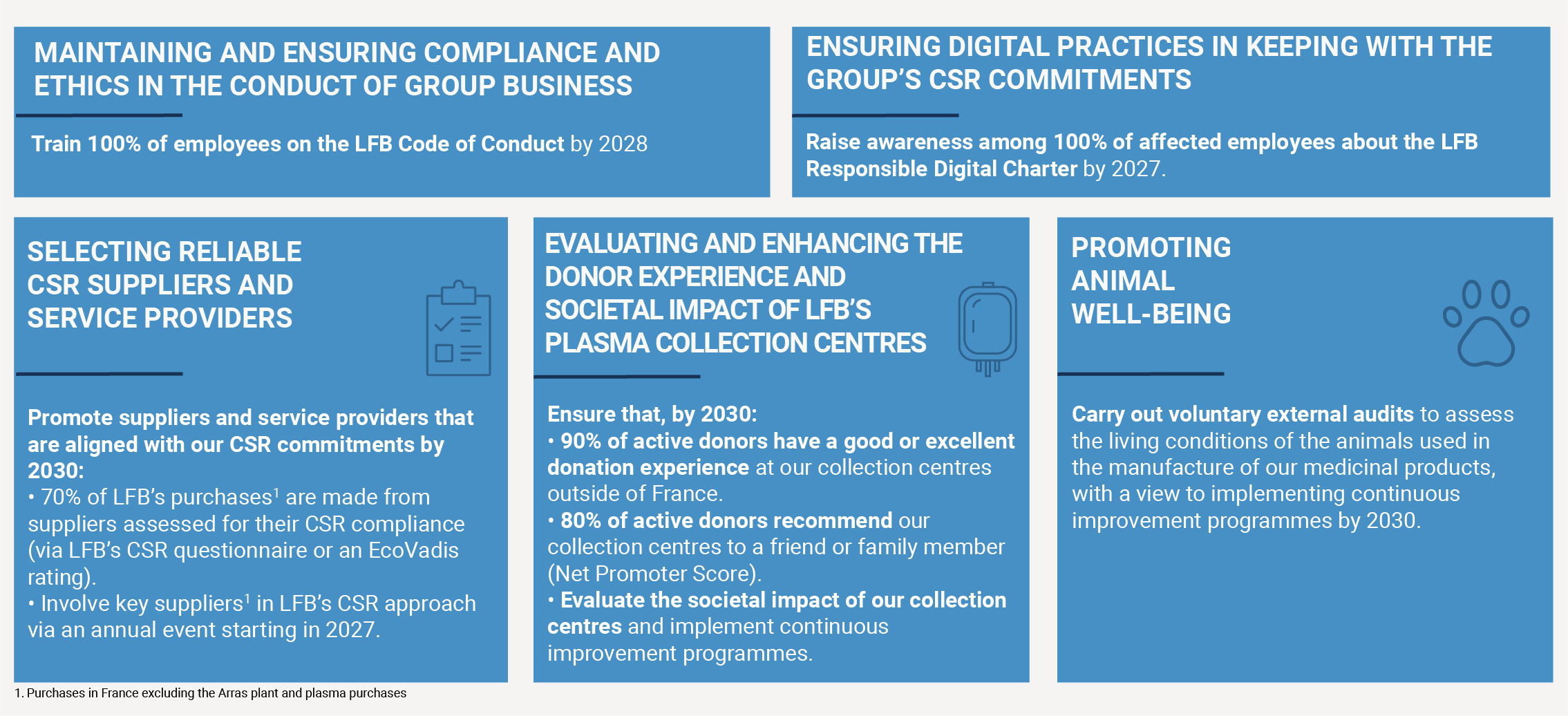Building trust: ethics and responsibility are essential to health

Acting with integrity: responsible practices towards our stakeholders
Financial transparency, the absence of conflicts of interest and operational ethics are essential to the legitimacy and sustainability of pharmaceutical companies.
Ethics is a fundamental principle of the LFB, a duty that guides its actions and decisions, promoting responsibility, transparency and trust in all its activities.
Our evidence:
LFB shows its commitment as part of its responsibilities towards blood donors, patients, healthcare professionals, its employees, partners, shareholder and society as a whole. LFB has implemented a corruption prevention programme based on zero tolerance towards any practice contrary to the fight against corruption and other integrity failures.

CONTEXT FOR UNDERSTANDING THE CHALLENGES
Integrity is key in the pharmaceutical sector: transparency, ethics and reliability are major expectations of patients, donors and all stakeholders. Maintaining their trust is essential. Beyond to good business practices, this requirement concerns particularly plasma donors.
Fully recognizing their contribution is key to maintaining their commitment and ensuring the legitimacy of the collection model.
Integrity is also expressed through responsible purchasing. Sector expectations include traceability and secure supply lines. Further social issues to be taken into consideration are those related to animal well-being, and responsible use of digital technologies, including cybersecurity, data protection and digital sobriety.
Integrity is a common thread that links respect for donors and sustainability of the value chain, and it is an essential lever for sustainable performance in the sector.
Find out more about the other pillars of our CSR Strategy:
Sources:
- https://healthcareclimateaction.org/ : 71% of emissions in the healthcare sector currently derive from the supply chain (Scope 3).
- https://d8aaf127-0203-427a-b8b6-1f1b942cd1af.usrfiles.com/ugd/d8aaf1_cf831339d46f4fe4bfcfd0b0d1eb1f37.pdf : 7 million animals used in 2022 in the EU and Norway for scientific, medical, and veterinary research.







